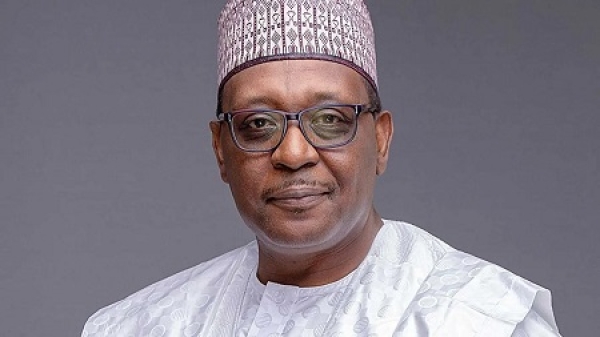Latest News
President Bola Tinubu is aware that Nigerians are suffering.
This is according to the Minister of Health and Social Welfare, Prof. Ali Pate.
Pate stated this while assuring Nigerians that Tinubu will find a lasting solution to the hardship.
The minister gave the assurance at the quarterly review meeting of the Traditional Leaders’ Committee on Primary Healthcare Delivery, representing the 19 northern states, held at the Government House, Bauchi, the state capital, yesterday evening.
Prof Pate said the President is not only aware but deeply concerned about the plight of the people.
“President Tinubu knows what Nigerians are going through. He feels the pain, he cares, and he is working day and night to ease the suffering. His main focus is on how we can improve the living conditions of our people,” he said.
The Minister acknowledged that the economic reforms introduced by the Tinubu administration have been tough on Nigerians, assuring that the long-term benefits would justify the sacrifices.
“Yes, there have been difficulties, but there is light at the end of the tunnel. After hardship comes relief,” he said.
He revealed that the federal government has been working tirelessly to address issues in key areas such as health and education.
According to him, 8,800 primary healthcare centers are now receiving regular funding through the Basic Health Care Provision Fund, while 4,000 centers are being revitalized across the country.
“This work cannot be done by the President alone,” Prof. Pate emphasized. “State and local governments, along with traditional and community leaders, must come together to ensure that we achieve the Nigeria we all desire.”
In his remarks, Governor Bala Mohammed commended President Tinubu for his efforts and called for even greater collaboration between the federal and state governments.
Mohammed stated that his administration is committed to the Abuja Declaration, allocating 15 percent of the state budget to the health sector.
He also acknowledged the significant contributions of traditional and religious leaders in facilitating the establishment of over 300 primary healthcare centers across the state.
The governor expressed appreciation to the Sultan of Sokoto, Alhaji Muhammad Sa’ad Abubakar III, for his role in mobilizing traditional rulers to create health awareness in communities.
Represented by the Secretary to the Government of Bauchi State, Barrister Ibrahim Mohammed Kashim, Mohammed said, “We appreciate our traditional leaders for their efforts in mobilizing the grassroots and raising awareness. This is how we can truly reach the people and improve their lives.”
“As Nigerians continue to bear the brunt of reforms, the government is urging patience, unity, and collective action to bring about the desired relief and long-term development.”
In his goodwill message, the United Nations Children’s Fund (UNICEF) Country Representative in Nigeria, Cristian Munduate, commended the traditional rulers from the 19 northern states for their pivotal role in Nigeria’s fight against the wild poliovirus and their ongoing efforts to combat outbreaks.
Speaking through her representative, Shamina Sharmin, Munduate stated, “I applaud our Royal Fathers for their significant contribution to writing Nigeria’s unique success story in eradicating the wild poliovirus and their vital role in the ongoing battle against outbreaks.”
She emphasized the indispensable roles traditional leaders play in polio eradication, routine immunization, and primary healthcare delivery, particularly in raising awareness and encouraging healthcare utilization among vulnerable groups like women and children.
“Combating polio requires a collaborative effort involving government agencies, international organizations, local communities, and other stakeholders,” she said, stressing the need for stronger partnerships to address challenges such as low routine immunization coverage, nomadic movements, and achieving a polio-free Nigeria.
Munduate urged traditional leaders to intensify efforts in strengthening routine immunization and ensuring Nigeria remains free of polio.
She also reaffirmed UNICEF’s commitment to collaborating with the Ministry of Health, the National Primary Health Care Development Agency, and other stakeholders to drive vaccination-related behavior change within communities.
In her words, “UNICEF remains dedicated to working closely with partners to overcome challenges and ensure every child receives the necessary immunization, bringing us closer to a healthier and polio-free future.”


